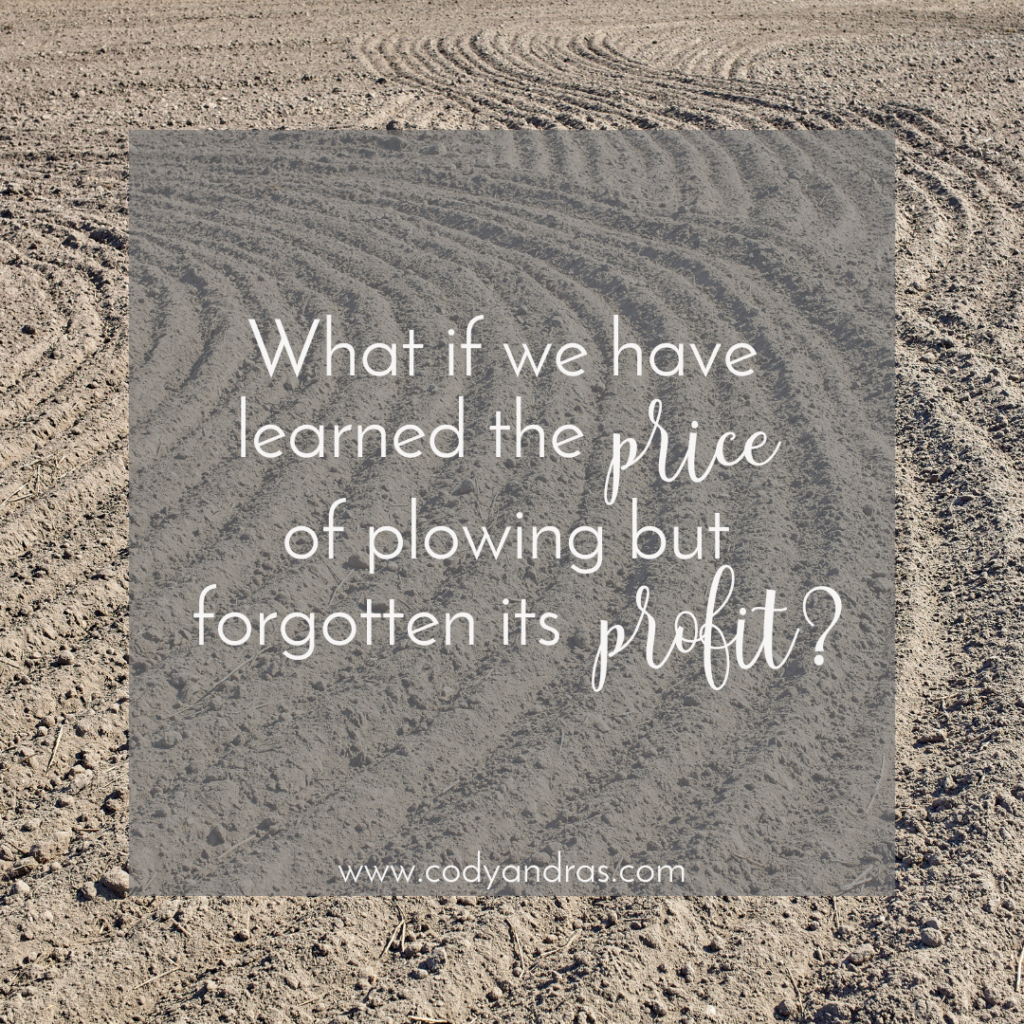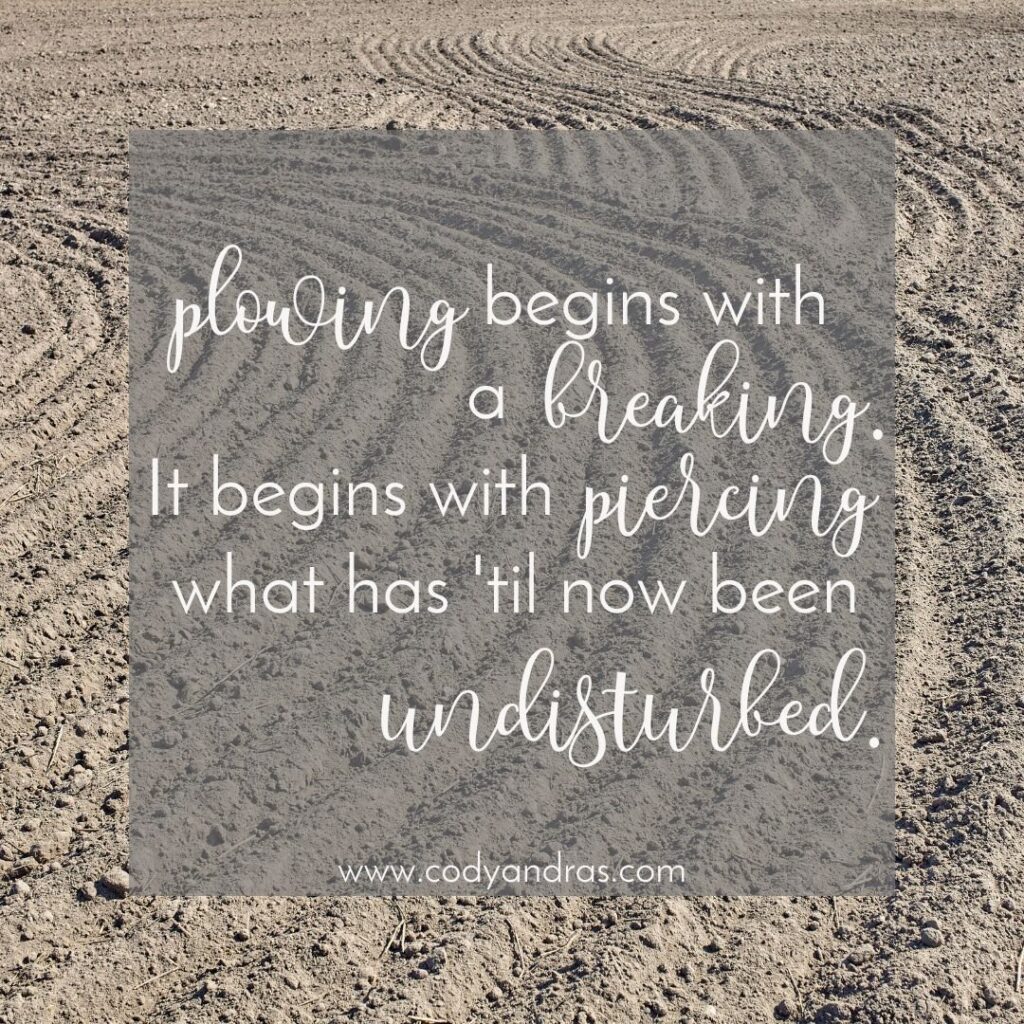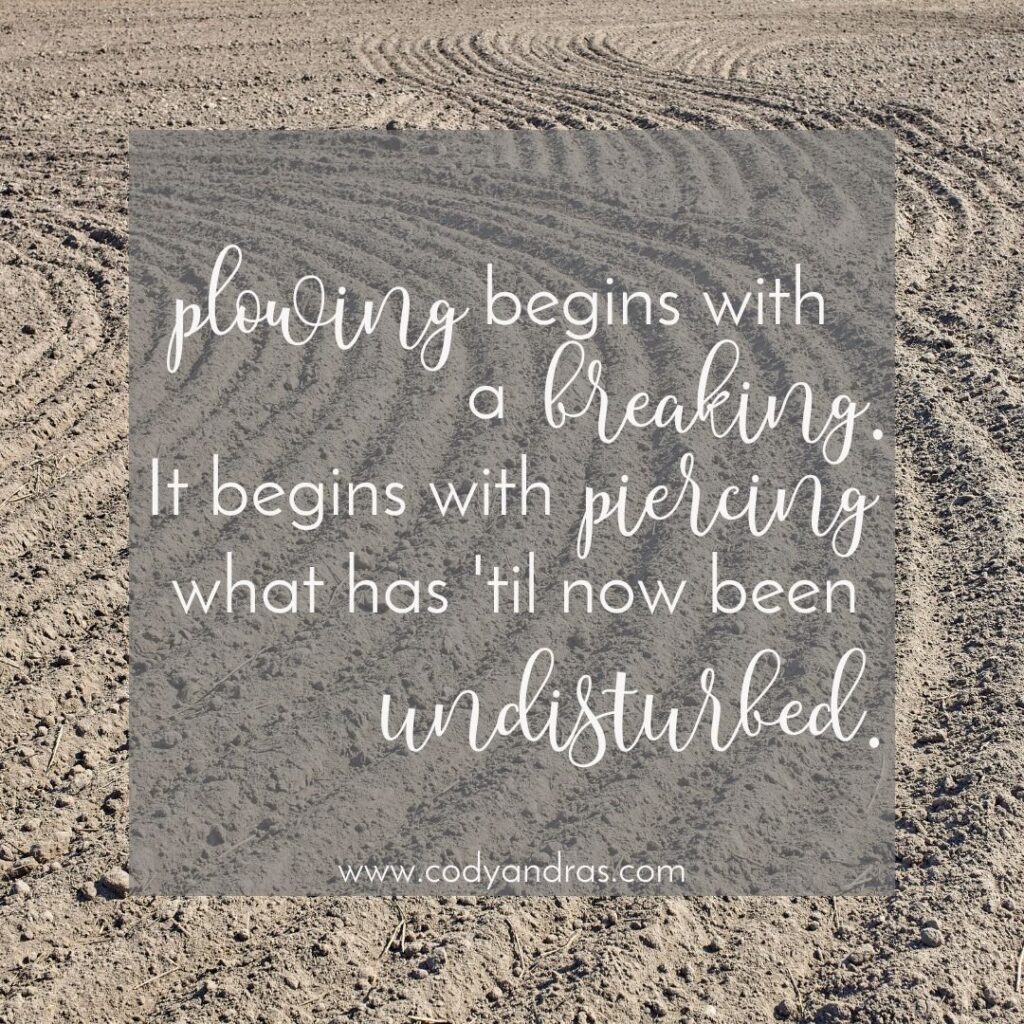Home » unplowed ground

In this episode, we’re going to talk about a few more things that stand in the way of plowing up our ground and living in deeper intimacy and fellowship with the Lord. I’m going to call it, “Possessive Plow Syndrome.” These are places where we are holding the plow tightly, like we can do something in our own strength and still experience the power and presence of God in that place.

The Bible tells us that it’s God’s kindness that leads us to repentance. THat’s because repentance is intended to bring us back into an intimate fellowship with and enjoyment of the presence of the Lord Himself. When we respond to God’s conviction by turning back to Him rather than by running away from Him, we find that our relationship with Him is restored.

Throughout the previous episodes and in the coming ones, I refer to hearing God’s truth, receiving God’s healing, gaining God’s insights and wisdom. But in order to do that, we must be able to hear His voice and to recognize Him when He speaks.
That is what we are talking about today. We are talking about the reality that God still speaks, some of the main ways that He still speaks, and a few practices that I’ve found helpful in positioning myself to hear from and respond to Him.

These rocks get in the way of us receiving from the Lord all that He has for us. We cannot layer truths on top of these hurts because there isn’t any way for that truth to take root. These stones are only moved when we walk back over to them. We must place our hands on the rock-hard surface of our broken hearts and reach out in desperation for the hem of the Healer’s cloak.
The first practice of plowing that we’ll discuss is that of telling the Lord the whole truth. Jesus invites us into His presence and acknowledges our presence in His. “Who touched me?” He asked the woman in Mark 5:32, and she fell before Him and told Him the whole truth. Might we be bold enough to do the same?

Unplowed ground to the untrained eye always looks more pleasant!
Unplowed ground, however, isn’t prepared to sustain life. It isn’t prepared to receive from the Giver of Life. A good farmer knows that the condition of the soil is critical for the success of the crop.
In this episode, we’ll consider the state of the soil of our lives in light of the parable of the sower from Luke 8. Is our land packed hard with old habits, like a well-worn but infertile path? Are there rocks of disappointment, doubt, or disillusionment in these fields that need to be revisited and removed? Have thorns grown up and choked out the life that longs to live here?

Our Unplowed Ground—at least the way I’m defining it—are the parts of our lives that we are ignoring, that we are refusing to look at or deal with, that we are, inadvertently or intentionally, closing the Lord out of. They are parts of our hearts, our spirits, our lives that we have neglected. In many cases, what we have neglected is spending time with the Lord. But don’t you think for one second that what we’re going to do here is heap guilt and shame upon ourselves for forsaking the “quiet times” that we know we should be having.

I asked a question on Instagram the other day about why y’all think you feel more distant from the Lord in this season. The overwhelming majority said that it was because you “lack discipline” in seeking to spend time with Him. I would definitely put myself in that category.
But the thing is, I don’t think we lack discipline just because we are lazy. What if we lack it because we don’t see the value of something? What if we don’t see the worth?
What if we have learned the price of the plowing but forgotten its profit?

The Lord planted a garden and He placed the man in it. And then God told Adam, long before sin slinked in, to work the ground and tend the garden.
The invitation remains. Work the field. Tend the garden. Till the soil and prepare this land for life again.

The Lord planted a garden and He placed the man in it. And then God told Adam, long before sin slinked in, to work the ground and tend the garden.
The invitation remains. Work the field. Tend the garden. Till the soil and prepare this land for life again.